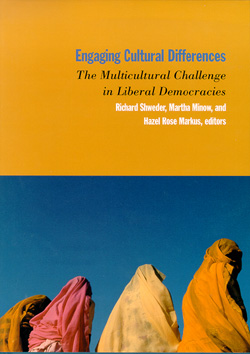

![]()
![]()

The organizing theme of this volume is the tension found in liberal democracies between the rights of individuals and the rights of groups. On the one hand we have individual human rights and civil liberties and on the other are group, communitarian, collective, or cultural rights. These poles can and do clash. The most pervasive example in the book has to do with female (and sometimes male) genital modification such as circumcision. Other dramatic cases involve infanticide, arranged marriages, and the murder of a spouse as a matter of "honor" among some groups. Several of the chapters appear to argue that the press and politicians in the United States have been deluged with unbalanced arguments in favor of individual rights– in large part by the feminist movement. In fact, in Chapter 11, the senior editor passionately defends cultural rights and attacks prominent feminists by name– a view not fully shared by a fellow editor in Chapter 12. It is my impression that, in its effort to clarify the less popular view, the book takes on a rather conservative social and political aura as in its sometimes criticism not only of feminist ideology but also human rights advocates such as Amnesty International and the American Civil Liberties Union.
The majority of contributors are lawyers or cultural anthropologists. Among the scattering of other social scientists no sociologists can be found. The nature of what constitutes evidence is then primarily legal (the law, legal precedents, legal cases, court decisions and the like) or ethnographic (observation, interviews, informants and the like). Hard evidence, as defined by other social scientists appears in an early demographic analysis (Chapter 1) and in several of the closing chapters by psychologists who report their own research as well as some relevant experimental literature. Among the chapters contributed by psychologists, there is considerable overlap in co-authorship and references to the literature (Chapters 17, 20, and 21).
Readers of Sociological Research Online will agree that there is a price to be paid for this somewhat parochial approach to such a catholic issue. The psychologists come down strongly for a dynamic kind of social psychology (there is a brief quote from George Herbert Mead) which is described as "mutual constitution." It closely resembles what sociologist call "symbolic interaction." Not only is the vast literature in that field ignored, but possible sociological contributions from other specialities are also neglected. Chapter 21 which deals with cultural variation in the efficacy of speaking, might have gained from a recognition of sociological work in the area of conversational analysis as well as the broader field of sociolinguistics. As central as it is to the theme of this book, the more recent development of a communitarian literature in sociology is overlooked. The editors might be forgiven their neglect of relatively recent and minor specialties within sociology, but nowhere in the book is there recognition of the long and central concern of American sociologists with race and ethnicity. And that (plus gender) is what this book is really all about.
Although most of the chapters review the American scene, there are a few which report on other nations and cultures as well as one which concentrates on indigenous peoples as minorities. Engaging Cultural Differences is a provocative exploration of the limits of tolerance in democracies which value individual freedom and human rights.
Irwin Deutscher
The University of Akron, U.S.A.